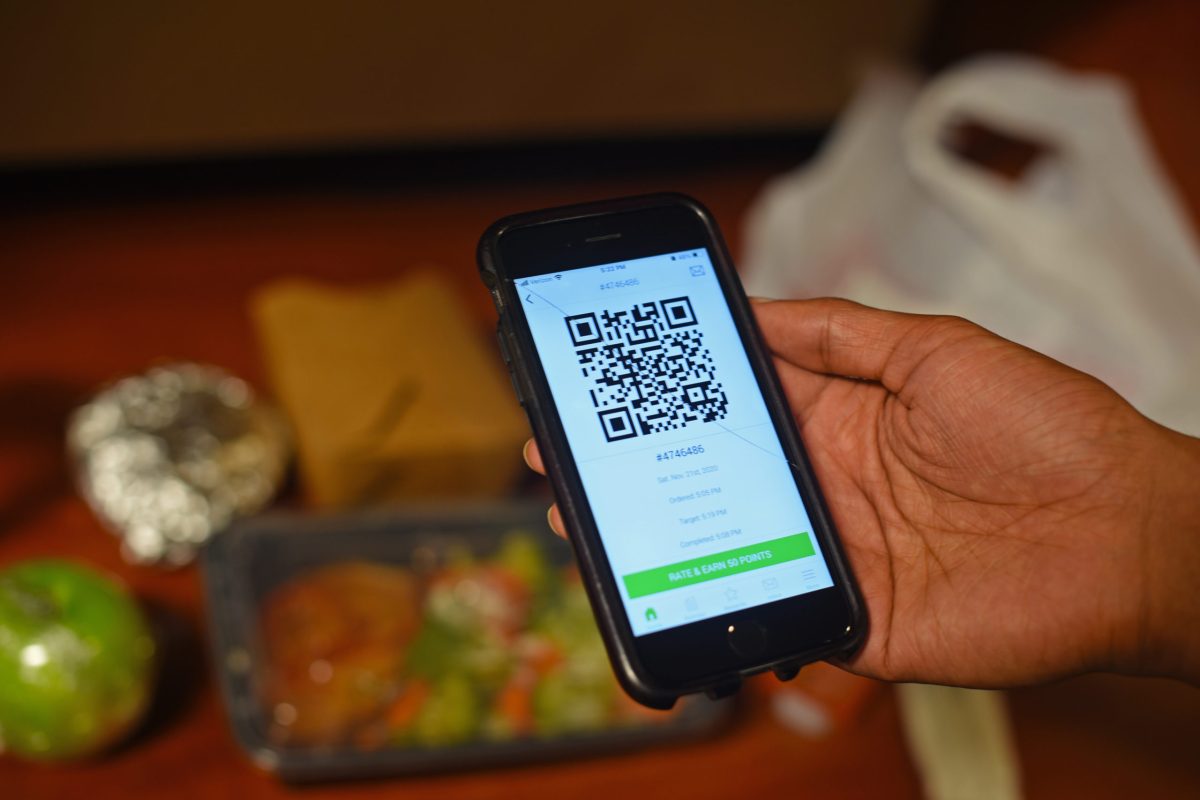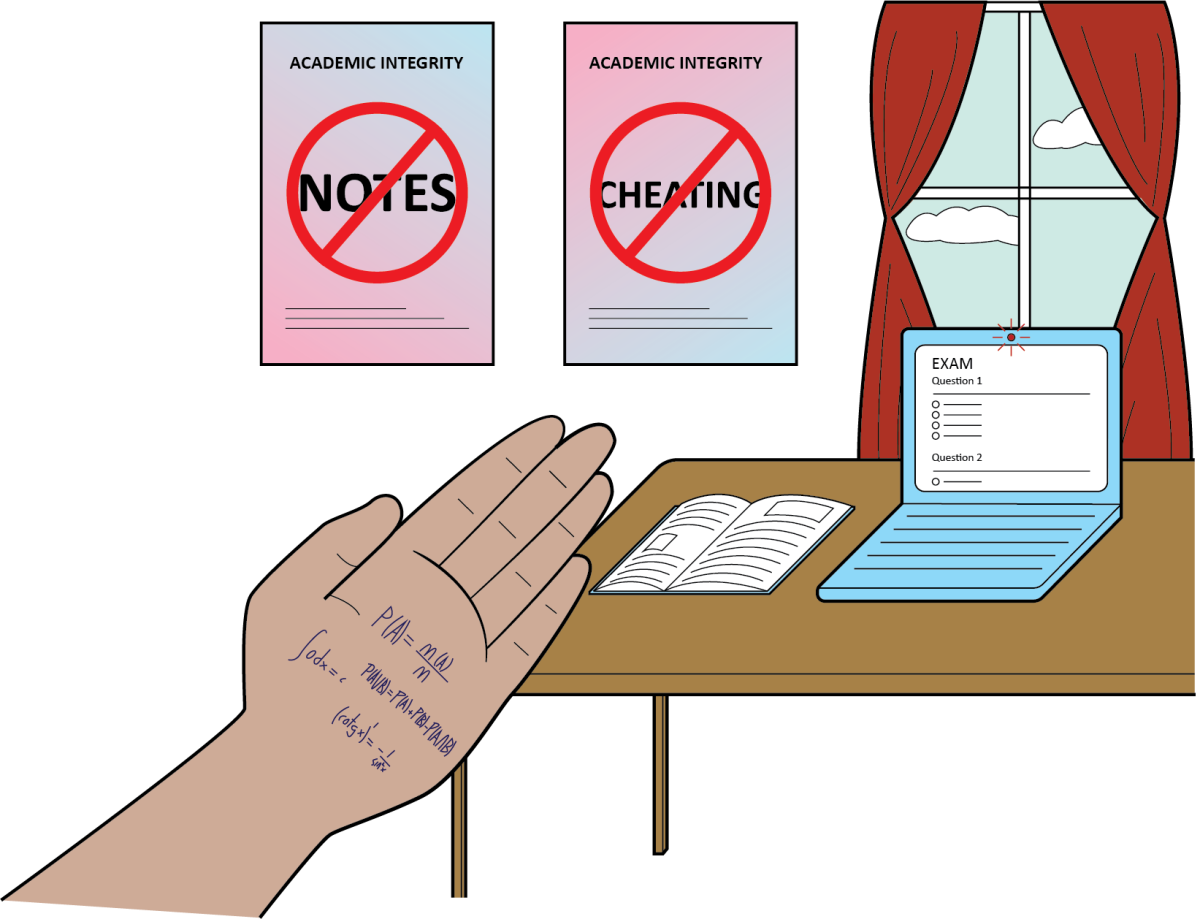From a morning pick-me-up to a late-day feast with friends, residential students look often rely on food from Gourmet Dining Services (GDS), the dining hall on campus. However, GDS’s practices has left many students with a bad taste in their mouth due to lack of proper labeling, despite directives in their contract with NJIT.
Students with food restrictions (e.g. people with lifestyle choices such as veganism and vegetarianism, or people with health restrictions such as lactose or gluten intolerance) fret to order from GDS, to carefully avoid any foods that would upset their diets. Under COVID-19 restrictions, vague descriptions of food offered by the Mobile Order app’s limited textbox space make this decision even more difficult. Some, no matter how hard they try, consistently report being unable to consume their picked-up entrees after detecting some sneakily integrated ingredient or seasoning never before mentioned. Many claim their meal misfortunes arise from mislabeling and flagrant misidentification of food options by GDS staff.
Christina Hermansen, first year biology student, said that because of her acid reflux, “I am unable to eat anything spicy, with too much oil, or things with too much acidity… On a regular basis I have to take a gamble on their “Mexican,” “fried,” “Cajun,” and “curry” foods having no idea what spices they decided to use that day.” Hermansen also notes that “Of those 5-ish times I order from GDS in a week, about 1 or 2 I actually could not eat a single thing on the menu and just had a protein bar.”
Second year computer science student Sean Slusarz has an intolerance to wheat and gluten products. Slusarz said it was always hard to tell which products in the dining hall contained gluten, because entrees are not marked as such. “I would often closely observe the food put out and have to try to figure out what could be in it based on what type of food it was. There were times GDS would label things that are gluten free but that happened only a few times.”
Slusarz noted, “I knew even before I came to NJIT that some fries do have wheat in them. So when I first saw them, I was like, I want to try them, but I’m not sure if I can actually have them. I looked around and saw the company the fries came from, I did a reverse search, and it turned out they do have wheat in them so I decided to avoid them… I know GDS’s food sources are easily accessible and searchable, I think this problem could be easily fixed by labeling them properly. I know they have tried to use cards previously for foods that were vegan or had dairy, but it’s still really hard to tell what is in their food, and what isn’t in their food. In this situation, I would at least want to see a list of major allergens attached to each entrée.”
Manal Desai, a first-year on-campus computer science student, is a vegetarian, and notes that “About 75% of the time, I find myself unable to eat GDS food that I would normally order. I either eat food that I get from home, or I order from Leafs and Grains since a majority of the options have meat in them…”
Desai further explained that “If GDS had the options that they usually have pre-COVID, most of my meals would come from GDS. However, I understand that precautions need to be taken, and thus, the number of options are limited.” GDS, like many other businesses, are currently handicapped in capability, not just operating at less than full capacity, but also receiving cutbacks from ingredient suppliers, requiring them to limit the total amount of foods produced each day. Most notably, items like tofu, seitan and tempeh on the menu have been known to be interchanged freely on the vegan menu due to decreased availability of the specialty items.
Clearly, for people with special dietary needs, navigating the nondescript menus for day-to-day sustenance provides more than a hassle. Not knowing exactly what ingredients are served could mean the difference between a good day and a stomachache, and for people with serious allergies, a difference between life and death. Desai voiced the wish of many hungry and bewildered students, asserting “The descriptions on the app are vague… It would be even better if they had a list of the main ingredients in the description.”
Indeed, Section 2.14.4 of Gourmet Dining Services’ contract with NJIT states that as a part of GDS’s Nutrition Awareness Program, they must provide a “Daily posting of ingredients for each entrée served,” a requirement that remains currently unfulfilled. David Arluna, the Resident District Manager of Gourmet Dining at NJIT, stated that he was unaware of such a promise. Further, Arluna stated that “it’s a lot easier said than done… we are limited on the characters through the mobile app, so the daily listing of ingredients would not be possible at this point in time.”
When it was suggested that ingredients be posted on the NJIT Dining Services website, he said that “You have to understand… there’s so much to label for so many food items every single time… but I will do my best to fix that.”
Arluna argued for a more personalized solution: “If students have dietary restrictions, unfortunately we can’t list [all of them] on the mobile app, however, they can come speak with us before they order and we go over the food with them to make sure that none of their restrictions are in what they order… I’ll make something for them – I don’t want the kid not to eat! You guys pay for the meal plan, so come talk to us.”
Regarding this option, Slusarz said, “I know some people there care, and some people don’t care, and maybe it’s just a matter of talking to the right person, but that can be very difficult if you don’t know them.”








































